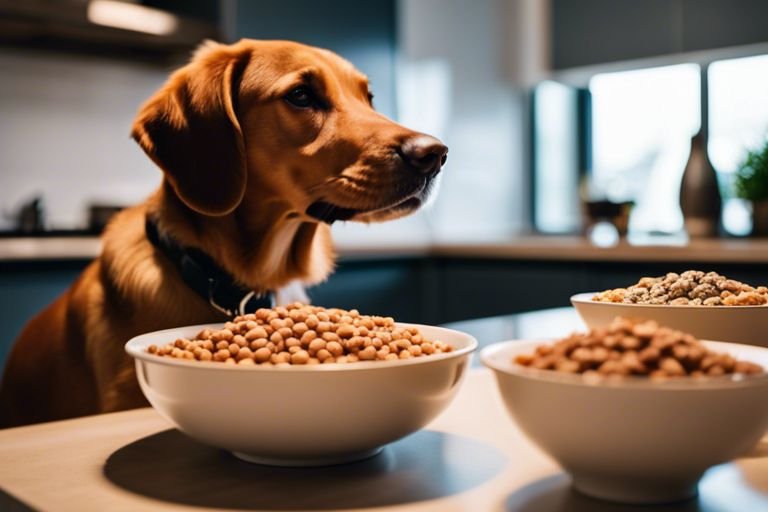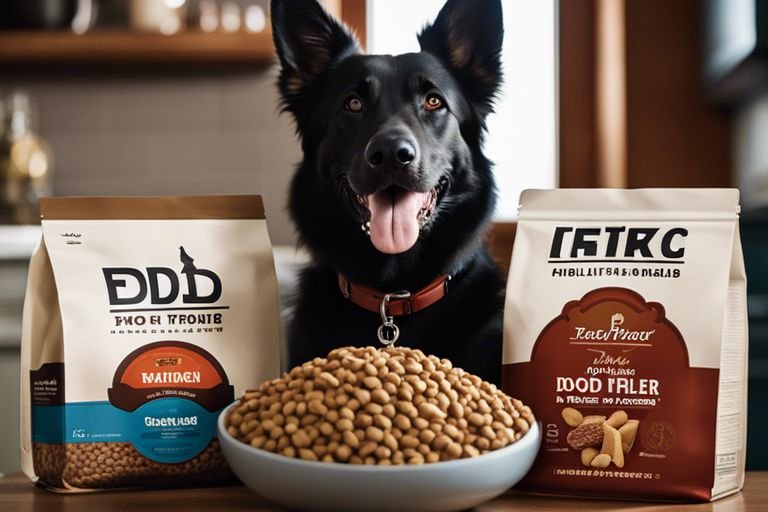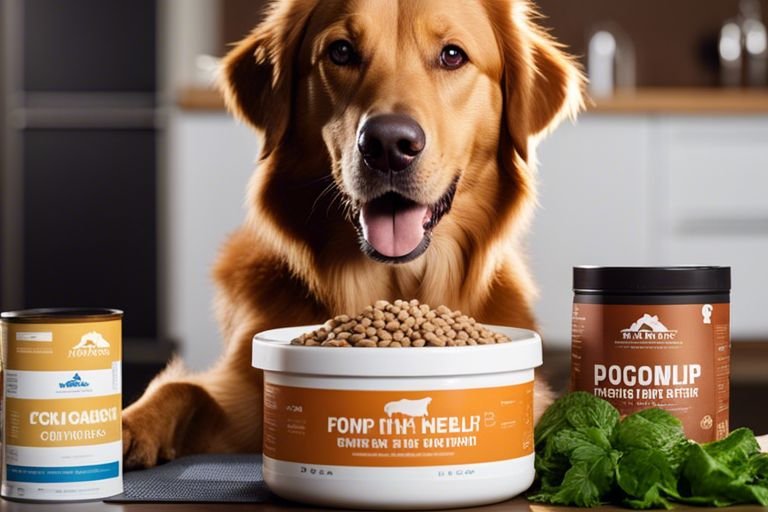How To Choose The Best High-Protein Dog Food For Your Pup

This comprehensive guide will help you navigate the world of high-protein dog food to ensure your furry friend is getting the nutrition they need. From understanding protein sources to deciphering ingredient labels, we will provide you with vital tips and factors to consider when selecting the best high-protein dog food for your beloved pup.
Key Takeaways:
- Consider your dog’s specific needs: Choose a high-protein dog food that is suitable for your dog’s breed, age, and activity level.
- Look for named protein sources: Opt for dog foods that list specific protein sources like chicken, beef, or fish, instead of vague terms like meat by-products.
- Avoid fillers and additives: Check the ingredients list for fillers such as corn, wheat, and soy, as well as artificial colors, flavors, and preservatives.
- Consult with your veterinarian: If you’re unsure about which high-protein dog food to choose, seek advice from your vet who can recommend the best option for your furry friend.
- Monitor your dog’s response: After transitioning to a new high-protein diet, observe your dog’s health, energy levels, and coat condition to ensure the food is meeting their nutritional needs.

Understanding Your Dog’s Dietary Needs
Determining Protein Requirements
While dogs are primarily carnivores, their protein requirements can vary based on factors such as age, activity level, and health status. Clearly understanding your dog’s individual needs is crucial in selecting the right high-protein dog food for optimal health and wellbeing.
Recognizing Life Stage Nutritional Needs
Little puppies have different nutritional needs than senior dogs. A dog’s life stage – puppy, adult, or senior – influences the amount of protein and other nutrients required for overall health. Matching the protein levels in your dog’s food to their specific life stage ensures they receive the appropriate nutrition at each phase of their life.
Key Factors to Consider When Choosing High-Protein Dog Food
Clearly, selecting the best high-protein dog food for your furry friend requires careful consideration of several key factors to ensure their health and well-being.
- Ingredient Quality and Sources
- Balancing Protein with Other Nutrients
Ingredient Quality and Sources
Assuming your priority is providing your dog with high-quality nutrition, it is crucial to investigate the sources of protein in their food. Opt for brands that use premium, real meat as the primary protein source rather than fillers or by-products.
Balancing Protein with Other Nutrients
Assuming you’ve chosen a high-protein dog food, it’s crucial to ensure it also contains the right balance of other nutrients such as fats, carbohydrates, vitamins, and minerals. Consult with your veterinarian to determine the ideal ratio to support your pup’s overall health and energy levels.
Protein is vital for your dog’s muscle development, tissue repair, and overall immune system function. However, an excessive amount of protein in their diet can lead to health issues, so it’s crucial to strike a balance with other crucial nutrients for optimal canine nutrition.

Evaluating Dog Food Brands
Keep Best Dog Food: How to Know What’s Right for Your Dog handy as you evaluate different dog food brands to ensure you are providing the best nutrition for your furry friend.
Read Labels and Ingredients Lists
An necessary step in evaluating dog food brands is to carefully read the labels and ingredients lists. Look for high-quality proteins like meat, fish, or poultry listed as the first ingredients, with minimal fillers such as corn or wheat.
Tips for Interpreting Marketing Claims
It can be challenging to navigate through marketing claims on dog food packaging. Little words like “natural,” “premium,” or “grain-free” can be misleading. To make an informed decision, look for specific certifications like AAFCO statements and contact the manufacturer for more details.
- Verify claims with scientific evidence or certifications before believing them.
- Look for endorsements from veterinary professionals or nutritionists to validate the brand’s claims.
Tips for Interpreting Marketing Claims
It’s crucial to be cautious when interpreting marketing claims on dog food labels. With various terms like “holistic” or “organic” being used, it’s vital to dig deeper into what these actually mean for your pet’s nutrition. Any claims related to health benefits or superior quality should be substantiated with clear evidence.
- Consult with your veterinarian for recommendations on reputable dog food brands.
- Be wary of exaggerated or unsupported claims about the benefits of certain ingredients.

Practical Tips for Transitioning to High-Protein Dog Food
Your pup’s health is important, so transitioning to a high-protein dog food should be done carefully. Here are some practical tips to help make the process smoother:
- Introduce new food gradually to prevent digestive upset.
- Monitor your dog’s health and reactions closely during the transition period.
- Consult your veterinarian if you have any concerns or questions.
Introducing New Food Gradually
While transitioning to high-protein dog food, it’s vital to introduce the new food gradually to allow your pup’s digestive system to adjust. Start by mixing small amounts of the new food with their current food, gradually increasing the ratio over 7-10 days until they are fully transitioned.
Monitoring Your Dog’s Health and Reactions
Reactions Monitoring your dog’s health and reactions is crucial when transitioning to high-protein dog food. Keep an eye out for any changes in their stool, energy levels, coat condition, or any other unusual symptoms. If you notice any concerning reactions, consult your veterinarian promptly to ensure your pup’s health and well-being.
Final Words
With this in mind, choosing the best high-protein dog food for your pup requires careful consideration of their individual needs, preferences, and any pre-existing health conditions. By consulting with your veterinarian and reading labels thoroughly, you can ensure that your furry companion receives the right balance of nutrients to support their overall health and well-being. Be mindful of, a high-protein diet may not be suitable for all dogs, so always prioritize your pet’s specific requirements when making this crucial decision.
FAQ
Q: Why is high-protein dog food important for my pup?
A: High-protein dog food is vital for your pup as proteins are the building blocks for strong muscles, healthy skin, and shiny coat. It also provides energy and supports overall wellbeing.
Q: How do I know if my dog needs high-protein food?
A: Dogs that are very active, such as working dogs or those who participate in agility sports, pregnant or nursing dogs, and large breeds with high energy levels often benefit from high-protein dog food.
Q: What should I look for in a high-protein dog food?
A: When choosing high-protein dog food, look for a named animal protein (like chicken, or fish) listed as the first ingredient, preferably without fillers like corn or wheat. Ensure the food is specifically formulated for dogs, meeting AAFCO standards.
Q: Are there any risks of feeding my dog high-protein food?
A: While high-protein diets are generally safe for most dogs, it’s vital to consult with your veterinarian before making any dietary changes, especially if your dog has kidney issues or other health concerns.
Q: How should I transition my dog to a new high-protein food?
A: To transition your dog to a new high-protein food, gradually mix in increasing amounts of the new food with the old food over 7-10 days to avoid digestive upset. Monitor your dog’s reaction during the transition period.




